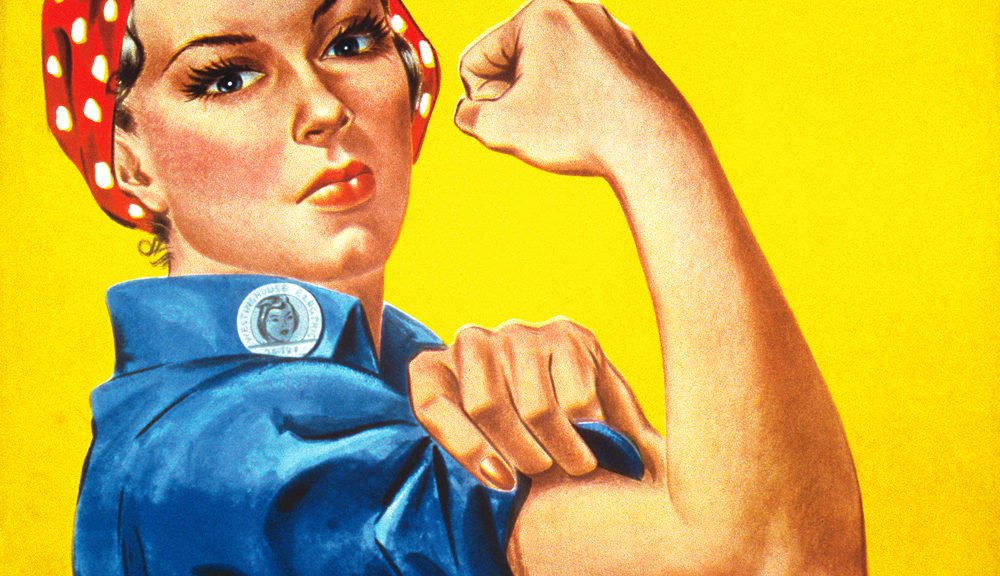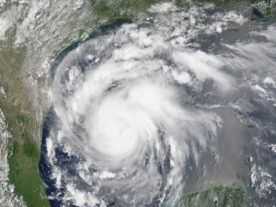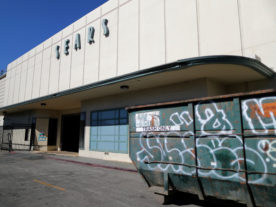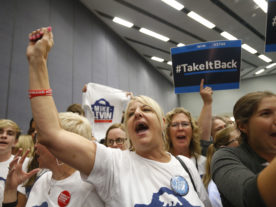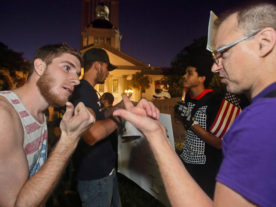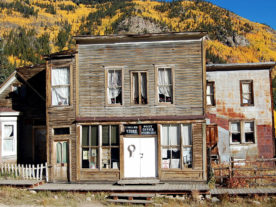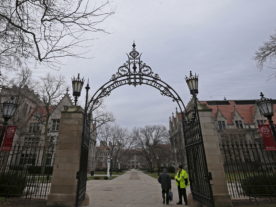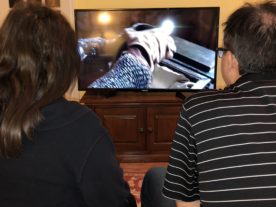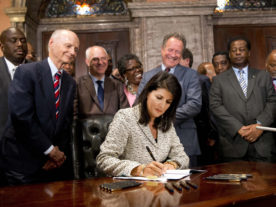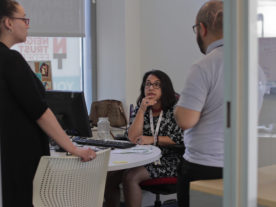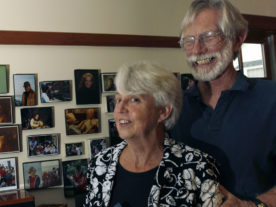
J. Howard Miller’s iconic “We Can Do It” poster became synonymous with Rosie the Riveter. (Wikipedia)
As Americans mark Labor Day on Sept. 4, one group hopes to shed light on women, commonly referred to as Rosie the Riveter, who worked manual labor jobs to support the troops during World War II.
To honor the millions of riveters, most of whom are in their 80s, Thanks! Plain & Simple, Inc. (Thanks!), will ring bells “from Maine to California,” starting at 1 p.m. Eastern time. In Washington, the bell will be rung at the National Cathedral.
“We Rosies are ready to show America what we have done and what we intend to do,” said Anna Hess, who made truck tires in Akron, Ohio starting at age 15. “Americans know so little about us –- the thousands of jobs we did, how we learned to be independent while we pulled together for a free world and to bring our boys home. I didn’t know I was a Rosie until I was 87. I’m learning so much, and I speak for many Rosies, including my mother, a deceased riveter.”

Women work on an airplane at the Douglas Aircraft Company in Long Beach, Calif., 1942. (Wikipedia)
While the exact number of Rosies is hard to know, from 1940 to 1945 women went from 27 percent of the workforce to 37 percent, according to History.com. They engaged in what were traditionally men’s jobs such as riveting, making munitions and other war-related industrial jobs.
“I loved riveting planes at Boeing in Seattle; but when the men came home, they got the red carpet, while we women got a pink slip,” said Mae Krier, who, at 18, began riveting airplanes for Boeing. “I’m not bitter, but, for the sake of what America stands for, it’s time people know what we have done and are doing again to show what women do.”

A woman is seen operating a lathe in 1942. (Wikipedia)
During the war, there was a multi-faceted public relations campaign to get women to join the workforce, but as Krier notes, after the war, things were different for Rosies, even though they have been celebrated in movies, books and song.
But on Labor Day the group hopes to again remind Americans of the crucial role Rosies played during the war.
“Ringing bells is a simple, powerful, way for people to unify to learn, save, and apply the Rosie legacy,” said Thanks! Founder Anne Montague. “People are often amazed when they meet Rosies, hear their fascinating stories, and see the impact they have had on the course of America and the free world. We find the best way to educate about Rosies is to get people to do something with Rosies, and ringing bells is easy, fun, and opens minds and hearts.”
Rosies from around the country are once again ready.
“I’ll be at the bell ringing at the President’s Church in Quincy, Massachusetts, where John Adams and his family are buried,” said Bertha Glavin of Quincy, Mass. “It’s good. I know that my little part in history, sewing uniforms for our troops, is a very small dot on the timeline of America’s reaching for what we can do.”

